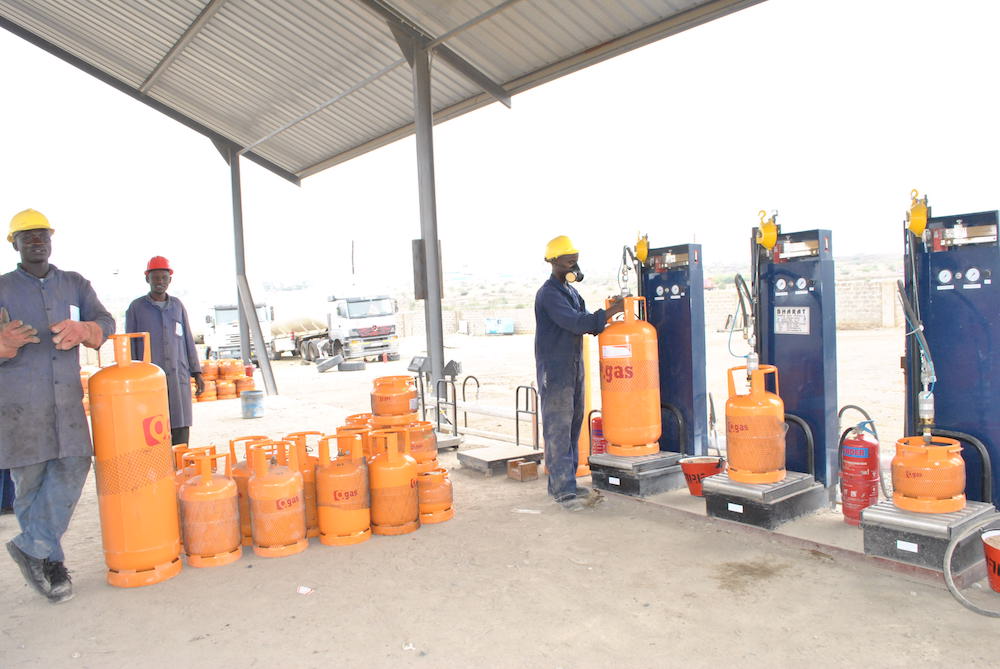The Nigerian Association of Liquefied Petroleum Gas Marketers (NALPGAM) says increment in the price of Liquefied Petroleum Gas (LPG) also known as cooking gas is worrisome.
NALPGAM’s President, Mr Nosa Ogieva-Okunbor, made this known while speaking at the association’s 34th Annual General Meeting (AGM) and Symposium in Lagos.
The price of 12.5kg of cooking gas has risen from N3,200 a few months back to about N6,000 in some parts of the country.
Ogieva-Okunbor noted that LPG consumption in Nigeria had increased from 550,000 Metric Tonnes in 2017 to about 1.2 million Metric Tonnes in 2020 going by NALPGAM’S members’ investments in LPG plants.
Read Also: NDA Attack: Military Personnel Manning CCTV Didn’t Sleep On Duty – DHQ
“However, in spite of efforts at increasing the availability of cooking gas in the country, the price of the product has become worrisome in the industry.
“If the trend is not addressed and a lasting solution proffered, all the gains made to increase consumption to the current modest level would be reversed.
“The high cost of the product with the eroding purchasing power of the people would only result in a reversal to the use of the readily affordable charcoal and firewood with the attendant negative environmental and health implications.’’
Ogieva-Okunbor said NALPGAM was engaging the relevant government agencies and stakeholders toward robust policy formulation on full domestication of LPG.
He noted that this would go a long way in ensuring price stability and availability of the product to protect the interest of consumers and investors in the LPG industry.
Ogieva-Okunbor said the association was also working toward improving safety in selling and distribution of LPG across the country to restore confidence among the consumers.
Also speaking, Mr Sergius Ogun, Chairman, House of Representatives’ Ad-hoc Committee on Relocation of Tank Farms from Residential Areas, said the Petroleum Industry Act (PIA) would help increase domestic supply of LPG.
Ogun said the Act recently signed by President Muhammadu Buhari had made it obligatory for operators in the gas sector to supply to the domestic gas market before exporting the product.
He said it was not acceptable for Nigerians to be cooking with firewood and charcoal when the nation was blessed with abundant gas.
The lawmaker said the association must collaborate with the government on the implementation of the PIA and also intensify efforts to get approval for local manufacturing of gas cylinders.
On his part, Mr Dayo Adeshina, Programme Manager, National Liquefied Petroleum Gas Expansion Implementation Plan, said the government was committed to deepening gas utilisation in the country.
Adeshina said the government was planning to inject 20 million cylinders into the domestic market within the next few years, adding that it would begin with 12 pilot states where 10 million cylinders would be distributed.
He said the lifespan of a cooking gas cylinder was 15 years, hence there was the need to remove ownership of the cylinders from individuals to marketers which was the practice in some other countries.
Adeshina said the theme of the symposium, “LPG Deepening and Expansion: Safety Concerns’’, was apt.
He said the government was ready to work with NALPGAM and other stakeholders to improve safety in the LPG industry to deepen its utilisation in Nigeria. (NAN)

